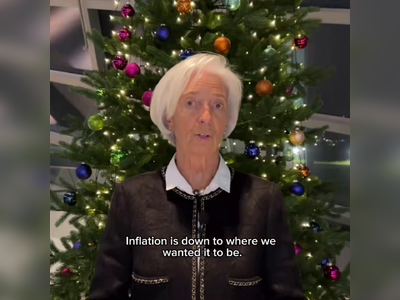France's Health Authority Advocates for Quality of Life Assessment in End-of-Life Legislation
The Haute Autorité de Santé calls for a focus on quality of remaining life as discussions on assisted dying legislation resume.
The Haute Autorité de Santé (HAS) in France has issued a statement emphasizing the need to evaluate the 'quality of remaining life' rather than the 'quantity' when considering eligibility for assisted dying.
This recommendation comes amid ongoing discussions about end-of-life legislation, which are set to resume on May 12 in the National Assembly.
The government, led by Prime Minister François Bayrou, has presented two distinct legislative proposals: one focused on palliative care and the other on active assistance in dying.
In its recent advisory report, the HAS has indicated a lack of medical consensus on the definitions of 'engaged vital prognosis' for the medium term and the concept of 'advanced phase' of a disease.
According to HAS President Professor Lionel Collet, initial definitions of short-term life expectancy, as established under the Léonetti law, are clear, but there is significant ambiguity regarding assessments extending beyond that timeframe.
Collet highlighted the challenges of determining the life expectancy of patients with multiple pathologies on a case-by-case basis, noting that it is not feasible to make broad prognostic predictions.
The HAS undertook the study with assistance from a committee of experts, reviewing scientific literature and international legislation while also consulting with specialists from both France and abroad.
Their findings revealed no alternative criteria could be effectively identified under more satisfactory conditions.
The authority reiterated the absence of 'scientific certainty' regarding individual prognosis assessments, advocating for a collaborative deliberation process that is centered around the patient prior to any request for assisted dying.
This ongoing 'process of discussion' would incorporate patient perspectives alongside those of their caregivers and healthcare professionals, facilitating recognition of the 'existential and social dimensions of suffering.' In this context, the HAS stressed the importance of comprehensive training for healthcare providers in communication and dialogue surrounding end-of-life issues.
This training is pivotal to prevent 'unreasonable obstinacy,' which can lead to futile life situations for patients.
The current practices regarding prognostic assessments are influenced by numerous factors that can evolve, leading to evaluations that lack reliability and carry a notable degree of uncertainty.
According to the HAS, any attempt to set an individual prognosis is fraught with risk and tends to overlook the unique therapeutic and individual factors that influence a patient's condition.
Additionally, the authority noted that no European country has adopted a time-based criterion in their definitions of medium term prognosis; some jurisdictions, like Quebec, have even abandoned such measures following initial applications.
Previously, the notion of a vital prognosis engaged for the 'medium term' was included in legislative proposals related to patient support and end-of-life considerations presented by Catherine Vautrin, though discussions were halted following the dissolution of the National Assembly.
Critically assessed and deemed vague, this language was subsequently removed.
In addressing the concept of an 'advanced phase' (or terminal phase) of a disease, the HAS clarified that it does not primarily refer to the timeline of impending death but rather to the trajectory of the patient's health condition.
The organization characterized this phase as 'the onset of an irreversible process marked by the deterioration of the patient's health, which affects their quality of life.' In conclusion, while the HAS acknowledged the impossibility of establishing predictions regarding the quantity of remaining life, it highlighted the potential of employing anticipatory measures focused on assessing the quality of life that remains, irrespective of the outcomes of parliamentary debates.
This recommendation comes amid ongoing discussions about end-of-life legislation, which are set to resume on May 12 in the National Assembly.
The government, led by Prime Minister François Bayrou, has presented two distinct legislative proposals: one focused on palliative care and the other on active assistance in dying.
In its recent advisory report, the HAS has indicated a lack of medical consensus on the definitions of 'engaged vital prognosis' for the medium term and the concept of 'advanced phase' of a disease.
According to HAS President Professor Lionel Collet, initial definitions of short-term life expectancy, as established under the Léonetti law, are clear, but there is significant ambiguity regarding assessments extending beyond that timeframe.
Collet highlighted the challenges of determining the life expectancy of patients with multiple pathologies on a case-by-case basis, noting that it is not feasible to make broad prognostic predictions.
The HAS undertook the study with assistance from a committee of experts, reviewing scientific literature and international legislation while also consulting with specialists from both France and abroad.
Their findings revealed no alternative criteria could be effectively identified under more satisfactory conditions.
The authority reiterated the absence of 'scientific certainty' regarding individual prognosis assessments, advocating for a collaborative deliberation process that is centered around the patient prior to any request for assisted dying.
This ongoing 'process of discussion' would incorporate patient perspectives alongside those of their caregivers and healthcare professionals, facilitating recognition of the 'existential and social dimensions of suffering.' In this context, the HAS stressed the importance of comprehensive training for healthcare providers in communication and dialogue surrounding end-of-life issues.
This training is pivotal to prevent 'unreasonable obstinacy,' which can lead to futile life situations for patients.
The current practices regarding prognostic assessments are influenced by numerous factors that can evolve, leading to evaluations that lack reliability and carry a notable degree of uncertainty.
According to the HAS, any attempt to set an individual prognosis is fraught with risk and tends to overlook the unique therapeutic and individual factors that influence a patient's condition.
Additionally, the authority noted that no European country has adopted a time-based criterion in their definitions of medium term prognosis; some jurisdictions, like Quebec, have even abandoned such measures following initial applications.
Previously, the notion of a vital prognosis engaged for the 'medium term' was included in legislative proposals related to patient support and end-of-life considerations presented by Catherine Vautrin, though discussions were halted following the dissolution of the National Assembly.
Critically assessed and deemed vague, this language was subsequently removed.
In addressing the concept of an 'advanced phase' (or terminal phase) of a disease, the HAS clarified that it does not primarily refer to the timeline of impending death but rather to the trajectory of the patient's health condition.
The organization characterized this phase as 'the onset of an irreversible process marked by the deterioration of the patient's health, which affects their quality of life.' In conclusion, while the HAS acknowledged the impossibility of establishing predictions regarding the quantity of remaining life, it highlighted the potential of employing anticipatory measures focused on assessing the quality of life that remains, irrespective of the outcomes of parliamentary debates.











